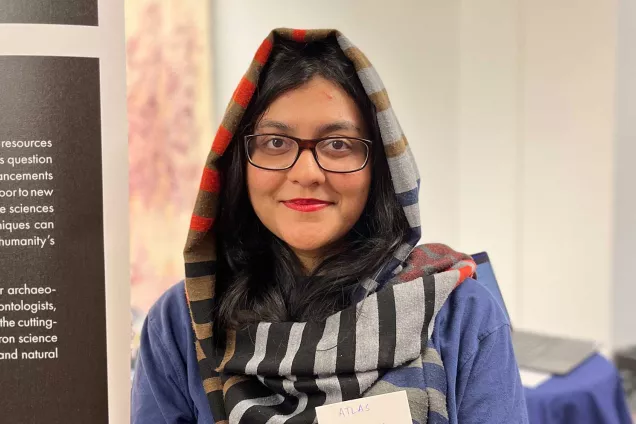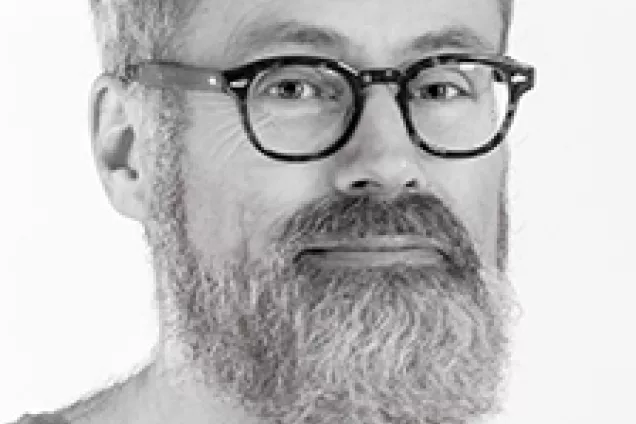Chemistry, Biochemistry - Master Programme
Master's programme · 2 years · 120 credits

Description
Would you like to become an expert on how proteins are structured and how they work? Equipped with this expertise, you will be at the knowledge frontier and able to help solve medical and biochemical problems at the molecular level. You can pursue a career as a biochemist both within academia and at research-intensive companies.
Programme overview
This Master’s programme provides you with specialised knowledge in protein chemistry, molecular biophysics and structural biochemistry. During the programme you will examine molecular structures and functional mechanisms in a large number of proteins. You will obtain ample experimental experience and learn to master methods for cloning, expression and purification of proteins. You will also learn a number of specialised techniques used to analyse proteins such as mass spectrometry and X-ray crystallography. You will practice independently planning, conducting and critically evaluating experiments.
You will also learn to use scientific literature as well as manage and analyse data in various forms. Teaching takes place on modern premises and in laboratories with advanced equipment. The format of the Master’s programme varies and includes lectures, seminars, group exercises, extensive laboratory work, calculation exercises, computer exercises and project work, including oral and written presentations.
The programme has strong ties with research. All of the teaching staff are researchers, and the course content is continuously adapted based on current research. The Department of Chemistry is characterised by a broad spectrum of basic research and applied research, as well as close contact with industry and external research centres. Lund is also home to two unique research facilities – the MAX IV Laboratory and the ESS (European Spallation Source) neutron source, the latter of which is currently being constructed. The facilities offer applications in many areas of chemistry. The language of instruction is English in the Master’s programme.
Programme structure
You can influence and plan your study design to a large extent. During the first semester you will initially take a course on molecular driving forces and chemical bonding, or a course on experimental protein chemistry. You will thereafter study structural biochemistry. In the spring semester you can choose e.g. molecular microbiology or molecular biotechnology as well as advanced biochemistry.
In the second academic year you can add more courses depending on the scope of your degree project. The degree project can be worth 30, 45 or 60 credits and is conducted in a research team or at a company. If you decide to do a degree project worth less than the maximum number of credits, you can do a second project. The Master’s programme offers the option of doing an internship, which can provide valuable professional contacts during the programme.
Career prospects
Programme graduates are highly skilled in conducting research and development work within the life sciences, biochemistry and protein science. The Master’s programme provides a good foundation both for doctoral studies and a career at research-intensive companies. Half of our Master’s students continue to doctoral studies, and half begin working in industry in Sweden or abroad.
Conditions in the study environment and during study visits and field studies
The programme contains compulsory elements that require you to be able to work independently and safely in a laboratory environment, in a hospital environment, in workshops, in production facilities, or during study visits and field studies. These elements require the ability to comply with safety regulations and instructions, and to move around in and evacuate premises safely. The elements also require the ability to monitor and control the processes studied.
Open for applications
Application opportunitiesThis programme is open for applications from 15 October 2024 to 15 January 2025.
Contact
Program coordinator
Sophie Manner
Email: sophie [dot] manner [at] chem [dot] lu [dot] se
Study advisor
Lovisa Andersson
Phone: +46 46 222 83 57
Email: lovisa [dot] andersson [at] kilu [dot] lu [dot] se
Requirements and selection
Entry requirements
Specialisation: Biochemistry
Bachelor’s degree of at least 180 credits or the equivalent, including at least 90 credits in chemistry, of which at least 15 credits must be in biochemistry.
Proficiency in English equivalent to English 6/B from Swedish upper-secondary school.
Selection criteria
English language requirements
Most of Lund University’s programmes require English Level 6 (unless otherwise stated under 'Entry requirements'). This is the equivalent of an overall IELTS score of 6.5 or a TOEFL score of 90. There are several ways to prove your English language proficiency – check which proof is accepted at the University Admissions in Sweden website. All students must prove they meet English language requirements by the deadline, in order to be considered for admission.
How to prove your English proficiency – universityadmissions.se
Country-specific requirements
Check if there are any country-specific eligibility rules for you to study Bachelor's or Master's studies in Sweden:
Country-specific requirements for Bachelor's studies – universityadmissions.se
Country-specific requirements for Master's studies – universityadmissions.se
Apply
Start Autumn Semester 2025
Day-time Lund, full time 100%
In English
Study period
1 September 2025 - 6 June 2027
Application
Last application date 2025-01-15
How to apply
Lund University uses a national application system run by University Admissions in Sweden. It is only possible to apply during the application periods.
Step 1: Apply online
- Check that you meet the entry requirements of the programme or course you are interested in (refer to the section above on this webpage).
- Start your application – go to the University Admissions in Sweden website where you create an account and select programmes/courses during the application period.
Visit the University Admissions in Sweden website - Rank your programme/course choices in order of preference and submit them before the application deadline.
Step 2: Submit documents
- Read about how to document your eligibility and how to submit your documents at the University Admissions in Sweden website. Follow any country-specific document rules for Master's studies or Bachelor's studies
Country-specific requirements for Bachelor's studies – universityadmissions.se
Country-specific requirements for Master's studies – universityadmissions.se
- Get all your documents ready:
- official transcripts and high school diploma (Bachelor's applicants)
- official transcripts and degree certificate or proof that you are in the final year of your Bachelor's (Master's applicants)
- passport/ID (all applicants) and
- proof of English proficiency (all applicants).
- Prepare programme-specific documents if stated in the next paragraph on this webpage.
- Upload or send all required documents to University Admissions before the document deadline.
- Pay the application fee (if applicable – refer to the section below on this webpage) before the document deadline.
* Note that the process is different if you are applying as an exchange student or as a part of a cooperation programme (such as Erasmus+).
* If you have studied your entire Bachelor's programme in Sweden and all of your academic credits are in Ladok, you do not have to submit transcripts or your diploma when applying for a Master's programme. However, there may still be other documents you need to submit! See the link below.
* Svensk student?
Läs instruktionerna om att söka till ett internationellt masterprogram på lu.se
Programme-specific documents
No programme-specific documents (such as a CV or letters of recommendation) are required when you apply for this programme.
Tuition fees
Non-EU/EEA citizens
Full programme/course tuition fee: SEK 340 000
First payment: SEK 85 000
Citizens of a country outside of the European Union (EU), the European Economic Area (EEA) and Switzerland are required to pay tuition fees. You pay one instalment of the tuition fee in advance of each semester.
Tuition fees, payments and exemptions
EU/EEA citizens and Switzerland
There are no tuition fees for citizens of the European Union (EU), the European Economic Area (EEA) and Switzerland.
Application fee
If you are required to pay tuition fees, you are generally also required to pay an application fee of SEK 900 when you apply at the University Admissions in Sweden website. You pay one application fee regardless of how many programmes or courses you apply to.
- Paying your application fee – universityadmissions.se
- Exemptions from paying the application fee – universityadmissions.se
- Convert currency – xe.com
*Note that there are no tuition or application fees for exchange students or doctoral/PhD students, regardless of their nationality.
Scholarships & funding
Lund University Global Scholarship programme
The Lund University Global Scholarship programme is a merit-based and selective scholarship targeted at top academic students from countries outside the EU/EEA.
Lund University Global Scholarship
Swedish Institute Scholarships
The Swedish Institute offers scholarships to international students applying for studies in Sweden at Master's level.
Scholarship information on the Swedish Institute website
Country-specific scholarships and funding options
Lund University has agreements with scholarship organisations and funding bodies in different countries, which may allow applicants to apply for funding or scholarships in their home countries for their studies at Lund University.
External scholarships
Testimonials about this Master's

Meet our student ambassador Hadiqa
Read her testimonial and chat with her via Unibuddy.

"The labs cover a lot of methods that are really useful"
Viktoria from Sweden

Read a short interview about the programme
With Professor Urban Johanson